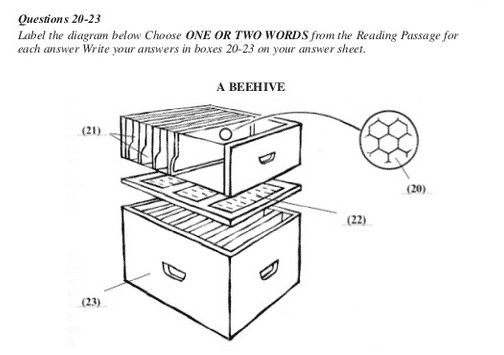Liu Xin: I think if it is through cooperation, if it is through mutual learning, if you pay for the use of this IP or high technology, it’s absolutely fine, why not? We all prosper because we learn from each other, I learnt English because I had American teachers, I learnt English because I had American friends, I still learn how to do journalism because I have American copy editors or editors. I think that’s fine so long as it’s not illegal, I think everybody should do that and that’s how you get better.
刘欣:如果通过合作的框架,互相学习,如果你支付了知识产权的费用,我觉得是可以的。为什么不呢?我们互相学习才能共同进步。我自己也学英语,因为我有美国老师,我有美国的朋友,同时我做新闻,我的编辑、同事很多都是美国人。只要不是违法的事情,都是可以做的,大家都应该这么做,才能够不断让自己做得更好。
Trish Regan: You mentioned something pretty important, which is that you should pay for the acquisition of that (IP)。 I think that the liberalized economic world in which we live has valued intellectual property and it’s governed by a set of laws. So we all need to play by the rules and play by those laws if we‘re going to have that kind of trust between each other. But I think you bring up some good points. Let me turn to China right now which is, wow, the second largest economy. At what point will China decide to abandon its developing nation status and stop borrowing from the World Bank?
翠西·里根:你说的有一点非常重要,就是你要获得这些(知识产权),你就得付费。我觉得我们生活在一个经济自由化的世界,我们历来都很重视知识产权的保护,并且知识产权是受到一整套法律保护的。如果我们想要达成对彼此的互信的话,我们都需要根据规则和法律行事。我现在换个话题吧,中国已经是世界第二大经济体,你觉得什么时候中国会停止称自己为发展中国家,会不再向世界银行借钱?
Liu Xin: Well I think this kind of discussion is going on, and I’ve heard very live discussions about this. And indeed there are people talking about China becoming so big, why don’t you just grow up? Basically I think you said it in your program as well, “China, grow up!” I think we want to grow up, we don’t want to be dwarfed or poor, underdeveloped all the time. But it depends on how you define developing country. If you look at China’s overall size, the overall size of the Chinese economy, yes, we are very big. But don’t forget we have 1.4 billion people, that is over three times the population of the United States. So if you divide the second largest overall economy in the world, basically when it comes down to per capita GDP we are less than one sixth of that of the United States, and even less than some other more developed countries in Europe.
So you tell me where we should put ourselves. This is a very complicated issue, because per capita as I said is very small, but overall it’s very big. So we can do a lot of big things, and people are looking upon us to do much more around the world. I think we are doing that, we are contributing to the United Nations. We are the world’s biggest contributor to the UN peacekeeping missions (among the five permanent members of the UN), we are giving out donations and humanitarian aid and all of that because we know we have to grow up. And Trish, thank you for that reminder.
刘欣:我觉得这种讨论,也在进行之中,我听到了很多现场的讨论,的确,有人说中国已经成为一个大国,为什么不能像一个成人一样长大。基本上你也在你的节目中,也说到,说中国要长大,我们的确也想要变的强大,我们不想要一直是一个弱小、贫穷、欠发达的国家,但这也要取决于你如何定义发展中国家,对吗?如果你看中国整体的经济体量,的确是体量非常大,但是你不要忘了,我们有14亿人口,这个是美国的三倍之多。虽然中国是世界第二大经济体,但是如果按人均GDP来算的话,大概是美国人均GDP的六分之一。与某些欧洲发达国家相比,甚至会更少。
那你告诉我,我们该如何定位自己呢?这是一个非常复杂的问题,因为像我所说的人均的数值很小的,但是总体的体量又很大,我们可以做一些大事,人们也寄希望于中国,在全球有更多的贡献。我们的确也在这么做,我们为联合国做出了很多的贡献,我们是联合国(五个常任理事国中)维和行动最大的贡献方,我们给了捐赠、给了人道主义援助等等。我知道我们要继续壮大。翠西感谢你,你提醒的这一点非常好。
Trish Regan: Let‘s get to the tariffs. I’ve seen some of your commentaries too. And Xin, I appreciate that you think China could lower some of its tariffs. I watched you say that and I‘m totally in agreement with you. In 2016, the average tariff, effectively a tax, that was charged on an American good in China was 9.9%. That was nearly three times what the US was charging. So what do you say about this, what do you think about saying “hey, to heck with these tariffs, let’s get rid of them altogether.” Would that work?
翠西·里根:那我们来谈谈关税的问题,我也看了你之前的一些评论。刘欣,我也很感谢,你说中国可以降低一些关税,我看到你说了这个话,我完全同意你这个观点,2016年加征在美国产品上的平均关税,是9.9%,比美国加征在中国身上的高三倍。你觉得这个关税该怎么解决?如果我建议说“要不咱们采取统一行动,统一降低关税”,你觉得这可行吗?
#p#分页标题#e#Liu Xin: I think that would be a wonderful idea. Don’t you think for American consumers, products from China would be even cheaper? And for consumers in China, products from America would be so much cheaper too? I think that would be a wonderful idea, I think we should work towards that. But you talked about rule-based system, rule-based order. This is the thing, if you want to change the rules it has to be done in mutual consensus, basically when we talk about tariffs it’s not just between China and the United States. I understand if you lower tariffs just between China and the United States the Europeans will come, the Japanese will come, the Venezuelans will probably come and say ‘hey, we want the same tariffs’。 You can’t discriminate between countries. So it’s a very complicated settlement to reach. I think the last time the world agreed on the kind of tariff reduction China should commit to, was exactly the result of multilateral and years of difficult negotiations. The United States saw, in its interests, and decided to what degree they could agree, or to what degree they could lower their tariff - nobody put a gun to their head - and China agreed, although with some difficulty, to lower their, our, tariff considerably, it is all the decision of countries according to their own self-interest. Now things are different, yes, I agree, 20 years later, what are we going to do? Maybe these old rules need to be changed. You know what, let’s talk about it, let’s do it according to the rules, the same rules, but if you don’t like the rules, we‘ll change the rules, but it has to be a multilateral process.
刘欣:我觉得这是一个很好的想法。你不觉得这对于美国消费者来说,他们可以享受更加实惠的中国产品?对于中国的消费者来说美国的产品也会变的实惠?这是我们共同努力的方向。你提到一个基于规则的一个系统,或者是一个基于规则的秩序,所以说,如果要改变规则的话,就必须双方先达成共识。您谈到关税的问题,不光是中美之间的问题。如果你降低中美之间的关税,那欧洲会来、日本也会来、委内瑞拉也会来,同样要求降低关税,你不能区别对待,所以要达成这个协议,是非常复杂的。对,我是说关于贸易的问题,关于关税的,我认为上一次全球达成关于降低关税的意见,中方也做出了承诺,这就是多边主义和长期艰难谈判的结果。美国看到自己的利益,决定他们要降低到什么程度,降低多少,没人拿抢指着他们的脑袋。中国虽然遇到了一些困难,那我们也大幅降低了我们的关税,这都是各国基于自身利益做出的决定。现在大环境变了,我同意,20年过去了,我们现在要怎么做,有一些规则是需要改变的。你知道吗?那我们就聊聊这些规则,我们可以按照相同的规则行事,如果你不喜欢一些规则,那我们就改变它,但是我说的是这必须是多方达成的共同决定。
Trish Regan: There are rules. You can go back to the trade agreement of 1974, section 301, there is a rule that enables the United States to use tariffs to try and influence the behavior of China, should it be taking, stealing our intellectual property. And that, I think in some ways, is part of what this all comes back to and it’s a sense of trust. I hear you on the forced technology transfer and I think that some American companies perhaps have made some mistakes in terms of being willing to overlook what they might have to give up in the near term, but this an issue where the country as a whole needs to step in. And we‘re seeing the United States do that, perhaps in a way that hasn’t happened. It‘s been in the background, don’t get me wrong. I think previous administrations have identified the challenge but have really been a little unwilling to take it on so we‘re living in these very different times. How do you define state capitalism?
翠西·里根:那我们回到1974年《贸易法》301条款,《贸易法》301条款中,有规则授权美国可以用关税去限制中国的行为,如果中国拿走或窃取知识产权的话。某种程度来说,这是事情的本源,是关于信任的问题。你谈到强迫技术转让,一些美国公司也许做了错误的决定,愿意按照中国的要求,放弃一些东西。这个问题要从国家的角度介入。我们看到美国已经做出一些举措,并且是以一种前所未有的方式在做。现在实情就是如此,请不要误解为我的个人想法。我想说之前的政府看到了这样一些挑战,但是他们没有想要解决的意愿,目前来讲时代变了。你怎么定义国家资本主义?
Liu Xin: You mean how do I define…? Sorry I didn’t hear the last bit, you mean the forced technology transfer, or so-called forced technology transfer?
刘欣:我没有听清,您能再说一遍吗?想要定义什么?我听到你说强迫技术转让。
Trish Regan: No, state capitalism. I talked about forced technology transfer, but state capitalism.
翠西·里根:不,国家资本主义。之前是谈到过强迫技术转让,但现在说的是国家资本主义。
Liu Xin: Because you started with the forced technology transfer and somehow you skit away.
刘欣:你之前谈强迫技术转让,怎么突然跳到了别的主题?
Trish Regan: Hang on one second, Xin. Your system of economics is very interesting because you have a capitalist system but it’s state-run, so talk to us about that, how do you define it?
翠西·里根:等一下刘欣,你让我说完,你们的经济体系,是挺有意思的,你们有一个资本主义的体系,但是受国家控制的。跟我们聊一聊这方面,你是如何定义的?
南方财富网微信号:南方财富网
共4页:
-
相关文章
- [财经]中美女主播约辩完整版!中英文对照辩论内容全文(2)
- 中国古代十大富豪:范蠡一举夺冠,吕不韦无缘前五
- 世界上最白的人:维纳斯·巴勒莫(患有白化病)
- 世界上最小的婴儿:仅重280克,身长24厘米
- 世界上最可怕的三个小孩,最小的仅有8岁就连环杀人
- 新手演讲的注意事项介绍
- 2030年后沿海城市会被淹没吗
- 2022年国庆节为什么要连着上七天班
- 2022年国庆节可以出省旅游吗
- 2022年几月份就转凉了
德迅网 » [财经]中美女主播约辩完整版!中英文对照辩论内容全文(3)
免责声明:本文由网友提供互联网分享,不代表本网的观点和立场;如有侵权请联系删除。

 英文信件结尾处署名写在左边还是右边
英文信件结尾处署名写在左边还是右边 小学达到英语专四只能算“标配”?谁在助推
小学达到英语专四只能算“标配”?谁在助推 英语句子的连词(英语三个句子并列用什么连
英语句子的连词(英语三个句子并列用什么连 雅思阅读到底考你什么?
雅思阅读到底考你什么? 雅思阅读不同题型答题技巧
雅思阅读不同题型答题技巧